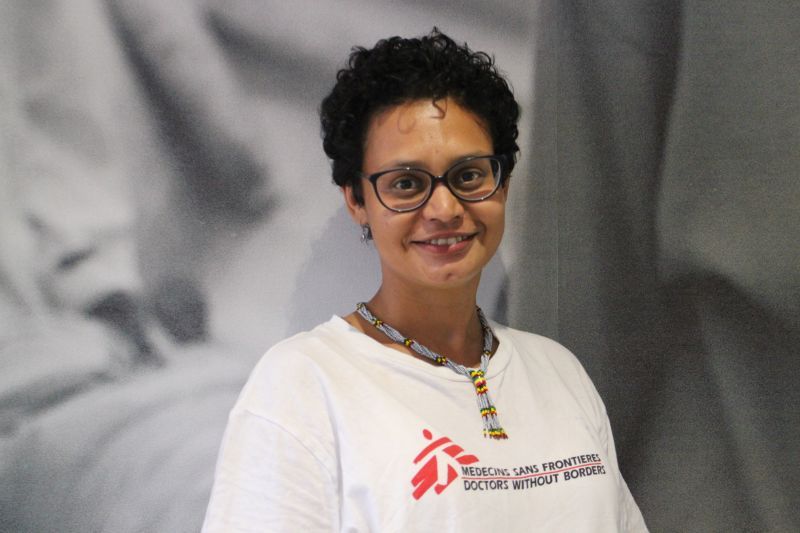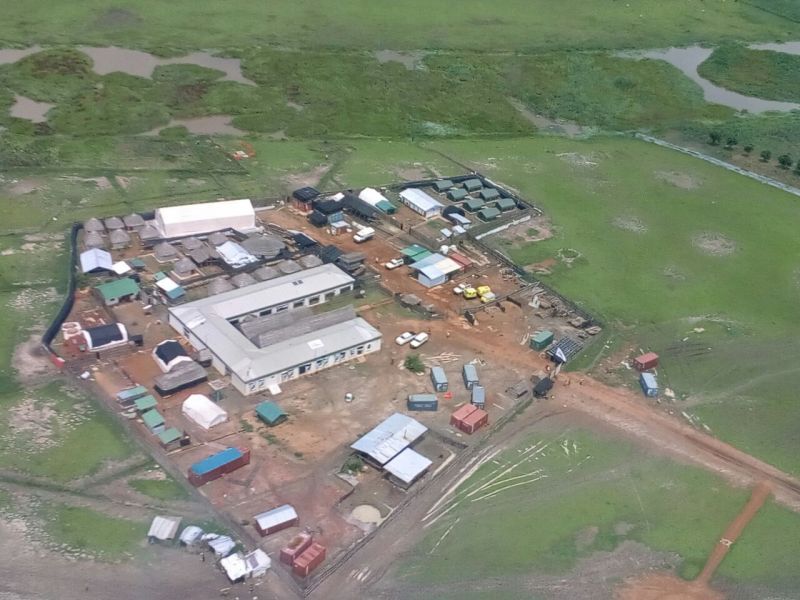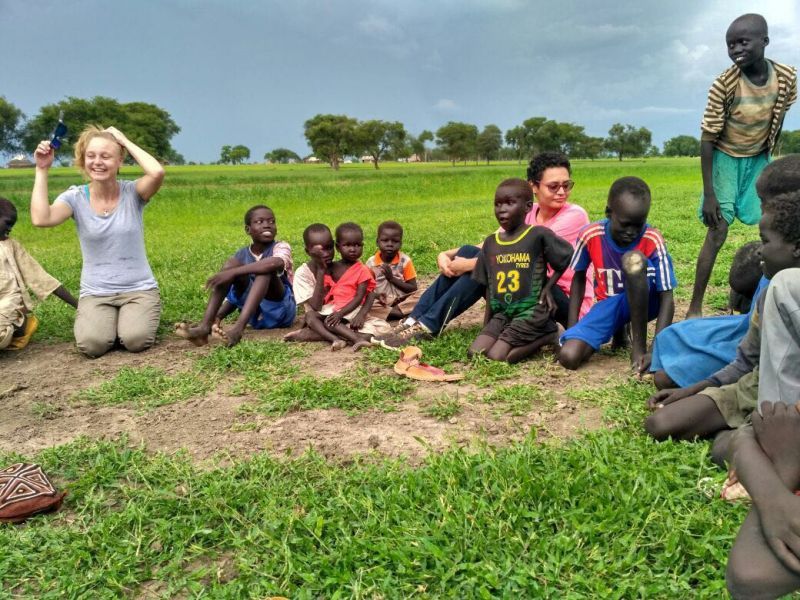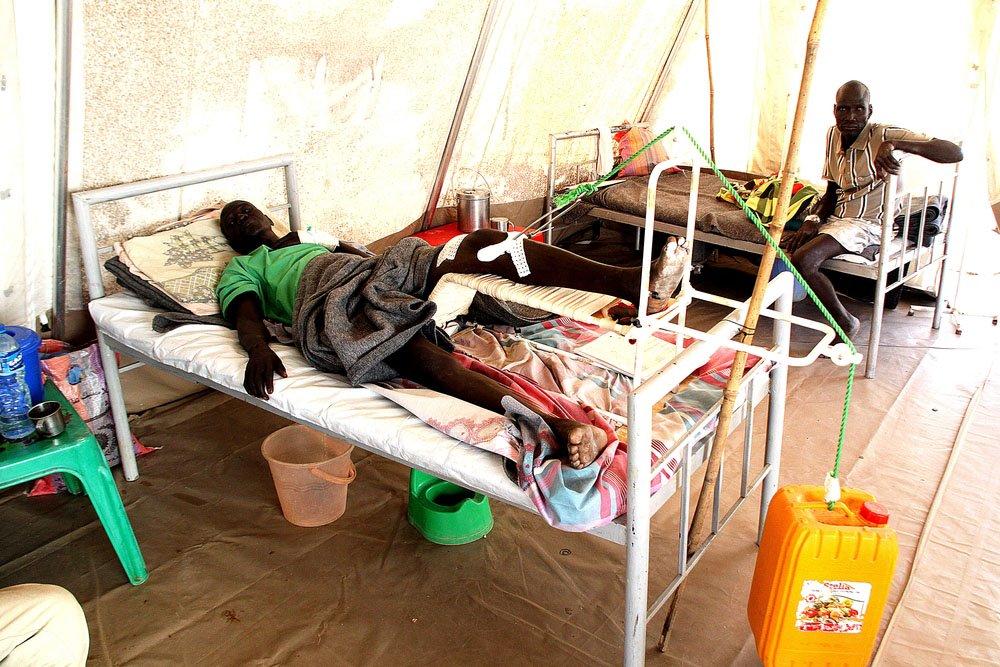Carissa Saunderson, an emergency doctor from Cape Town, South Africa spent three months working in South Sudan at a Primary Healthcare Centre run by Doctors Without Borders (MSF) in the town of Mayom. She blogs about her first field assignment for MSF and shares what she learnt from the experience.

If you asked me in the first weeks after landing in Mayom, South Sudan, if I would return for another MSF assignment, I would have replied with an eye-roll and a ‘Hell NO’. I would selfishly point out how I missed simple things like hot showers and flushing toilets. There’s an English proverb that goes: ‘A smooth sea never made a skilled sailor’. In this story, I’m not the sailor. I’m the person who got to work and live next to the sailor. And watch the resilience of the sailor blossom daily in a very muddy clay-like environment. I learnt about resilience and the strength of humanity. I’m immensely grateful to the souls I worked with for allowing me to do so.
The longer I stayed, the more the reason I initially joined MSF rang true: that it’s only ever about the patient.
Flying to Mayom on that first day, I was already deliriously fatigued from all the long haul flights and briefings and trying to keep everything in my brain (a common affliction amongst field workers I’m to learn afterwards). All I could see were little huts, far apart, with grassland surrounding them. The hospital compound came into view – a U-shaped structure in the middle, with a few tukuls (mud huts) behind it and a cluster of tents next to it.
This was MSF’s primary health care centre – the only medical service for kilometers, where I would spend the next three months filling in as a ‘rainy season doctor’; if you will. (The next medical facility was in Agok, a town a mere 120km away where we would refer acutely unwell patients or surgical cases. Unfortunately, due to the difficult road conditions, the trip could take anything from 8-10 hours, playing footsie with rivers of clay!)
Working in a primary clinic was different to what I was used to doing back home in an emergency room in Cape Town where, for example, you could request a chest x-ray, do some simple bloodwork or refer a patient to an appropriate department or facility altogether. Not in Mayom. We have to think more, to use clinical judgement, our stethoscopes, and our hands.

At the beginning it was stressful. But not instantly resorting to special investigation taught me to be more critical from a clinical point of view. By making us think a bit more, and really weighing our options and discuss a case, in the end this makes us better clinicians.
Some cases were also very challenging. I remember a young mother who came in five months pregnant, severely jaundiced, with high blood pressure and an altered mental state. Although we tried to support her as much as we could, her liver failed and in three days we lost both the patient and her baby. (Skip the part where I cried a little and then cried a lot. I went to bed thinking it was all for naught.)
I would lie if I said that it was easy. But thanks to wonderful leadership and a great team, I came to remember that, in the end, it’s only ever about the patients; whatever the outcome. And you can only ever do your best.
But it also taught me to focus on the good we are able to do for the many others who recover and survive.
With minimal facilities, MSF is able to provide extraordinary healthcare in Mayom. My time there taught me that you don’t need to rely on fancy technology, that you can learn so much just by talking to others, and that you can alleviate a lot of suffering just by sharing yourself and being compassionate.
By providing a little bit of care, a little bit of effort, it makes a major difference.
I remember one particular patient – a feverish, malnourished baby who had severe diarrhoea, was very dehydrated, and nearly in shock. His mother had been struggling, alone and in vain, for a week before bringing him to the facility.

The team was able to help by giving him IV fluids and medicine, and monitoring his progress, doing sponging and providing supportive care. Eventually this tiny person improved. The gratitude on this mother’s face spoke volumes. It was unlike anything I had ever seen.
Without me being able to speak her language nor her being to speak mine, she called me over. She reached behind her neck and took her necklace, and insisted I have it.
My knee-jerk reaction was to decline the gesture since it was a team effort and I’d been singled out. But something stopped me when I realised that, it was her most prized possession and she wanted to show her gratitude. Refusing it would have been an insult. With much protest, I accepted. I wore it immediately and for days after. Actually, the other day I wore it to my cousin’s wedding. Should my house burn down, I’d grab my dog, Chocolate, and that necklace!
In the end, when it was time to finally leave Mayom, I was grateful that I stayed. Moreover, I even toyed with the idea of requesting an extension for my assignment. The small things we often complain about, pale in comparison.
If you asked me today whether I would return for another MSF assignment in South Sudan, I would smile and tell you that an army of elephants couldn’t keep me away! (Ok, maybe an army of elephants would – but you get the idea).
And although I went there to help, I feel like I received so much more out of the deal.
Find out more about MSF's work in South Sudan
